Heathcliff and literature’s greatest love story are toxic
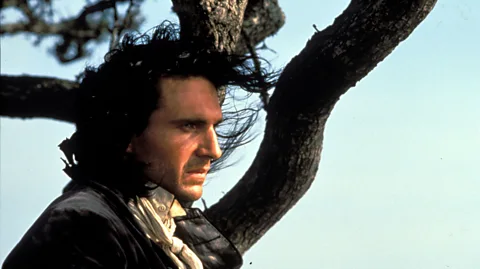 United Archives / Alamy
United Archives / AlamyEmily Brontë, who was born 200 years ago, imagined a character who for many is the ultimate romantic hero but for others is a menace, writes Hephzibah Anderson.
Brooding, untameable, downright tortured – what’s not to love? For many a reader, Heathcliff is the rugged embodiment of Byronic allure, all sturm und drang. This isn’t the only romantic cliché he personifies, either. He’s a walking rescue fantasy, the rejected child who’s suffered endless slights on his journey to manhood and requires only the love of a good woman to soothe his volatile soul. He’s misunderstood – deep and complicated and badly in need of someone who’ll truly get him.
Love for him is extreme, addictive, nihilistic – it’s about merging with another with such urgency that nothing else matters. And let’s not forget the tall-dark-handsome part, which is further enhanced by athleticism and smouldering eyes “full of black fire”. With his kinetic blend of instinct, intelligence and intensity, there’s something about Heathcliff to entrance readers of almost every erotic persuasion.
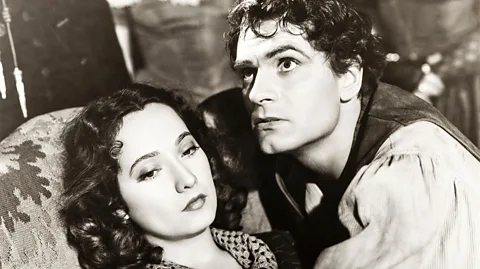 BFA/Alamy
BFA/AlamySince Wuthering Heights was first published in 1847, its larger-than-life hero (or should that be anti-hero?) has had a profound impact on romantic literature across the spectrum, from bodice rippers and YA hits to highbrow literary fiction. His influence isn’t confined to the page, either.
Author and Brontë buff Samantha Ellis recently struck a chord with an article titled How Heathcliff ruined my love life. A self-described “recovering Heathcliff addict”, she says Heathcliff was her “gateway drug”. After him came Rhett Butler, Rupert Campbell-Black, Buffy the Vampire Slayer’s Spike, Hilary Mantel’s Thomas Cromwell… Unfortunately, they were accompanied by real-life bad boys: “As I hit my teens, I actively chased bad men… In my twenties, I went out with men who were not always honest to me, or nice”, she writes.
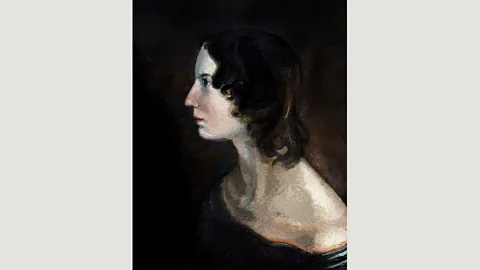 Alamy
AlamyLiterature – especially the really good stuff, and there’s no denying that the totemic Wuthering Heights deserves its status as a classic – is the very best teacher, embedding its messages in our hearts and minds under the cloak of cracking storytelling and indelible imagery. We absorb the truths of brilliant fiction almost subliminally, and that makes them so much harder to root out.
‘Operatic intensity’
What makes Heathcliff all the more intriguing is that he was unleashed upon our collective romantic daydreams by a woman who is thought never to have had a lover, a woman who was born 200 years ago and has been variously characterised as a fragile mystic, a people-hating spinster.
Emily’s fierce attachment to privacy and the absence of documentation has only fuelled speculation about her short life (she died aged just 30), leading to posthumous diagnoses of everything from agoraphobia and anorexia to Asperger’s.
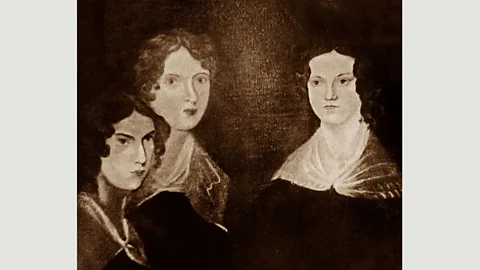 KGPA Ltd/Alamy
KGPA Ltd/AlamySome academics have simply refused to believe that the ion oozing from the pages of Wuthering Heights could have been conjured up using imagination alone. They’ve suggested romantic interests for her, including her own brother, Branwell, and even their sister, Anne.
Strip away some of the wackier speculation, and Emily Brontë is still quite a character, handy with a pistol and certainly not one for small talk. Much of the ‘Mad Emily’ myth derives from the fact that she was simply born in the wrong era. As Claire O’Callaghan notes in her new biography, Emily Brontë Reappraised, “Emily was an independent spirit at a time when female independence wasn’t culturally welcomed.”
So how does Heathcliff fit into this? Because while he is the ultimate romantic hero for many, regularly popping up in polls to determine literature’s most romantic character of all time, others find him considerably less charming. As the novelist Anne Tyler confided to the New York Times in 2015, “I somehow made it to adulthood without ever reading Wuthering Heights, but then I found out that several of my women friends considered Heathcliff their all-time favourite romantic hero. So I read about three-quarters of it as a grown-up, and immediately developed some serious concerns about the mental health of my friends.”
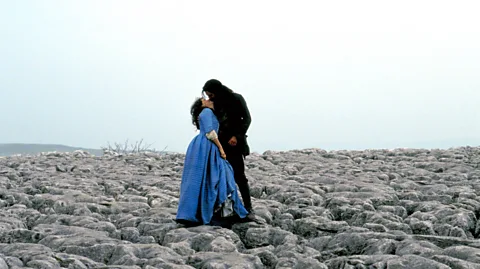 United Archives/Alamy
United Archives/AlamyThe crucial point here is that Tyler read the book as a “grown-up”. Most of us read Wuthering Heights in our teens. In other words, when we’re wildly impressionable and at an age when our crush on that kid in the year above feels like the greatest love story ever. Heathcliff’s desire is beyond obsessive, and for self-dramatising, ego-hungry teenage girls, that’s potent stuff. There’s also this to note: despite the operatic intensity of it all, there remains something safe about Heathcliff and his ion, because he’s always filtered through a narrator or two. At one point, we’re reading Isabella’s as told to Nelly as told to Lockwood. And their love, , is never consummated. It’s all very – well, teenage. It makes absolute sense that it should be the favourite novel of Twilight’s Bella and Edward.
Bad romance
Cinematic renderings of the text have much to answer for, too. Heathcliff has been portrayed by Laurence Olivier, Ralph Fiennes and… Cliff Richard. Most of these adaptations only deal with the first half of the novel, dodging the raw bleakness of its later chapters, which can feel claustrophobic in their portrayal of unpleasant characters being utterly vile to one another. when Gordon Brown likened himself to Heathcliff? It was assumed he meant the character’s filmic incarnation, especially when he qualified it by saying “maybe an older Heathcliff and a wiser Heathcliff”. In the novel, we actually get to meet an older Heathcliff, and he’s even more difficult – a tyrannical landlord consumed by his desire for revenge.
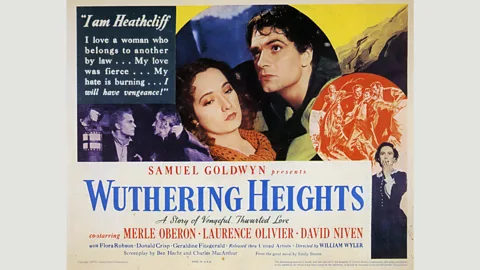 World History Archive/Alamy
World History Archive/AlamyReturn to the novel older, maybe wiser, and almost certainly with some experience of dating those who might politely be dubbed rogue, and Heathcliff is an altogether less appealing proposition. He’s surly and sulky. He’s violent, abusive and needy. He grins, he growls, he sneers. And he’s really not one for moving on. Emily’s sister Charlotte, ever ready to do her own sibling down, called Heathcliff’s love “perverted ion and ionate perversity”. It’s true that having been raised as siblings, Heathcliff and Cathy’s infatuation is laced with a queasy tug of incest. But even without that, their relationship can easily be read as obsessive, destructive, co-dependent – in a word, toxic.
Maybe it’s best not to think of Wuthering Heights as a romance at all. In the words of cult literary theorist Terry Eagleton, the relationship between Heathcliff and Cathy is “scarcely a relationship at all.” Why? “There is no question of otherness involved.” Certainly, Cathy’s famous quotes “I am Heathcliff” and “he’s more myself than I am”, connote something annihilating.
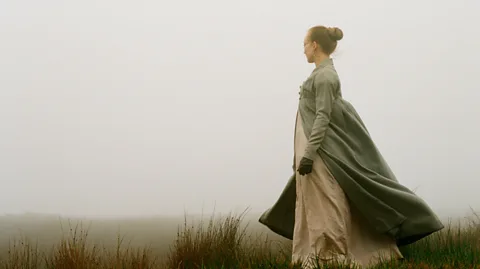 Alamy
AlamyWhatever your take on Heathcliff, it’s astonishing to think that a quirky, relatively isolated young woman, born in 1818, and very likely drawing on zero experience of sexual ion, could have been the one to create him. That she did so should make us think again about eroticism. Because private though she was, we do know from her verse that she took vivid, sweeping delight in the natural world, proving that you don’t need to have had sex or even fallen in love to experience that same surging swell of emotion. Of course, you still might want to think twice before casting Emily Brontë in the role of romance counsellor.
If you would like to comment on this story or anything else you have seen on BBC Culture, head over to our Facebook page or message us on Twitter.
And if you liked this story, sign up for the weekly bbc.com features newsletter, called “If You Only Read 6 Things This Week”. A handpicked selection of stories from BBC Future, Earth, Culture, Capital and Travel, delivered to your inbox every Friday.
